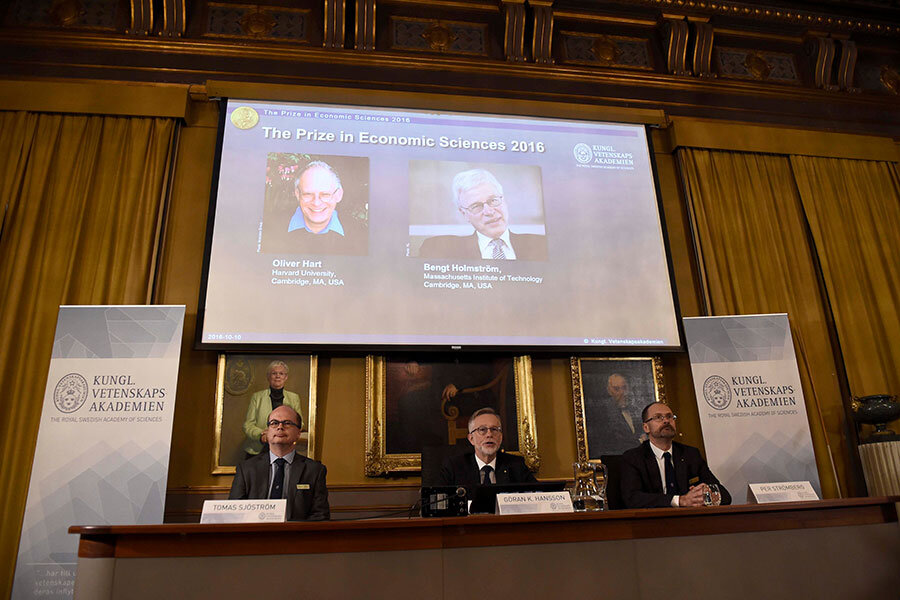What made economists' work in contract theory Nobel-worthy?
Loading...
| STOCKHOLM
British-born Oliver Hart and Finland's Bengt Holmstrom won the Nobel Economics Prize on Monday for work that addresses a host of questions from how best to reward executives to whether schools and prisons should be privately owned.
Their findings on contract theory have implications in such areas as corporate governance, bankruptcy legislation, and political constitutions, said the Royal Swedish Academy of Sciences, which announced the 8 million Swedish crown ($928,000) prize.
"This theory has really been incredibly important, not just for economics, but also for other social sciences," said Per Stromberg, a member of the prize committee and professor at the Stockholm School of Economics.
Contract theory considers, for example, whether managers should get paid bonuses or stock options, or whether teachers or healthcare workers should be paid fixed rates or by performance-based criteria.
Holmstrom, a 67-year-old professor of economics and management at the Massachusetts Institute of Technology, said he had been friends with Hart for decades and was thrilled to be sharing the award with him.
"He's my closest intellectual friend here and a personal friend also. And he has been important for my thinking and I hope I have been important for his thinking," he told Reuters Television at his home in Boston.
The nine academics who won Nobel prizes this year in medicine, physics, chemistry and economics included five Britons, a Frenchman, a Finn, a Dutchman and a Japanese.
Six of the winners, including all five Britons, are based at U.S. universities.
'HUG MY WIFE'
Hart, who teaches economics at nearby Harvard University in the Boston area, thought his research could win him the prize at some point. He said he awoke about 4:40 a.m. EDT (0840 GMT) and wondered whether it was getting too late to get a telephone call.
"Then fortunately the phone rang," Hart was quoted as saying on the officialTwitter account of the Nobel Prize. "My first action was to hug my wife, wake up my younger son."
Hart's work has focused in part on understanding which companies should merge and the right mix of financing, and when institutions such as schools, prisons and hospitals should be privately or publicly owned, the academy said in a statement.
He has argued that the incentives for cost reductions in privatized services, such as private prisons in the United States, are typically too strong.
Contracts are "just fundamental to the whole idea that trade is a quid pro quo and that there are two sides to a transaction," Hart said.
Holmstrom has studied the setting of contracts for workers from teachers to corporate bosses. He concluded that in high-risk industries, pay should lean toward a fixed salary, while in more stable sectors pay should be more biased toward performance rewards.
Holmstrom said the U.S. presidential campaign between Democrat Hillary Clinton and Republican Donald Trump was an example of them seeking a job that is about more than money.
"The fact that the way they behave is very much driven with what they hope to achieve, this is to become president and influence people and so on," he said.







